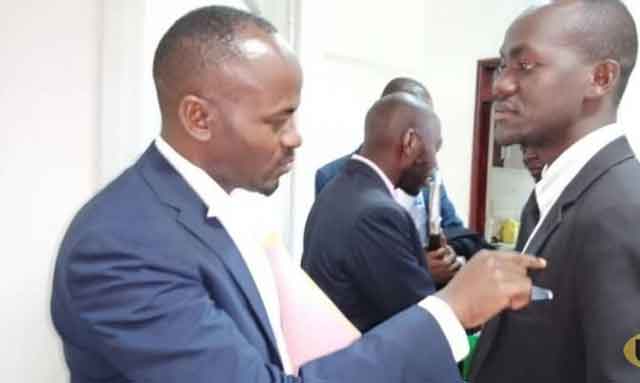
Kampala, Uganda | THE INDEPENDENT | High court has dismissed an application by city lawyer, Steven Kalali accusing Electoral Commission lawyers of forging his signature. Kalali ran to court accusing Eric Sabiiti and Hamidu Lugoloobi, both EC lawyers of forging his signature in a court document showing that he had consented that prison inmates and Ugandans in the diaspora would participate in the 2026 elections instead of 2021 polls as directed by High Court.
The order by Justice Lydia Mugambe stemmed from an application filed by Kalali demanding that each prison facility in the country be declared a voter’s registration and polling Center ahead of the 2021 general elections. However, EC through its lawyers led by lugoloobi and Sabiiti filed an application for review, saying there was no money and time to comply with the orders. According to court records, the parties later met and agreed that the order be implemented in the 2026 polls given the prevailing circumstances.
Following the agreement, Justice Esta Nambayo endorsed a consent judgment on July 20, 2020. However, a month later, Kalali returned to High court with a fresh application and also denied having appended his signature on the consent order. He asked the court to set aside the order, saying it could have been issued based on misrepresentation or fraud.
During the hearing, Hamidu Lugoloobi accused the applicant of lying because the available evidence shows that he was in court and personally signed the consent document that was later endorsed by Justice Nambayo. Lugoloobi said the consent was done in the presence of Kalali and his lawyers, Earnest Isaac Muwanga and Geoffrey Mutyaba.
He asked court to dismiss the application on grounds that Kalali participated in the proceedings leading to the endorsement of the order. In her ruling, Justice Nambayo agreed with the EC and dismissed the application with costs. She explained that the consent order was made by the lawyers of both parties and signed by the parties including Kalali and his lawyer, Mutyaba.
She argued that although Kalali’s other lawyer Deogratius Odokel didn’t sign the consent order; he was represented despite the fact that the court was never notified of this detail. To support her decision, Justice Nambayo said Kalali’s lawyers from Odokel -Opolot and company advocates went ahead a few days later to extract the order on costs, filed the bill of costs and wrote to the EC legal department notifying them how to pay the costs.
She argued that by turning around to file, an application, Kalali abused court processes. “Courts should condemn such actions because they waste a lot of courts time and deny genuine litigants the opportunity to be heard expeditiously. For this reason, the applicant will pay costs of this application to the respondent”, reads the ruling in part. The judgment means that Ugandans in the diaspora and prisons will have to wait until the 2026 polls to exercise their rights to vote. Kalali couldn’t be reached for comment on the judgment and his next course of action.
********
URN
 The Independent Uganda: You get the Truth we Pay the Price
The Independent Uganda: You get the Truth we Pay the Price



